“A gram pradhan has several responsibilities. How can a woman be expected to handle it?”
The number of women pradhans in the panchayat has increased as there are seats reserved for them, but their participation is still very low. The representatives are either their husbands or sons
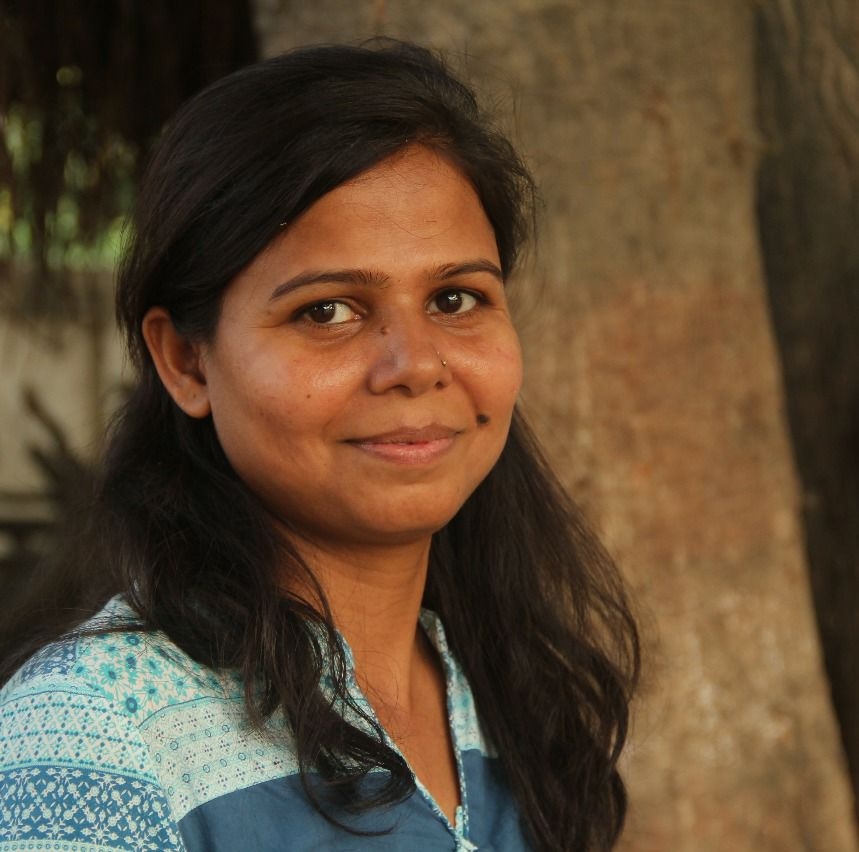
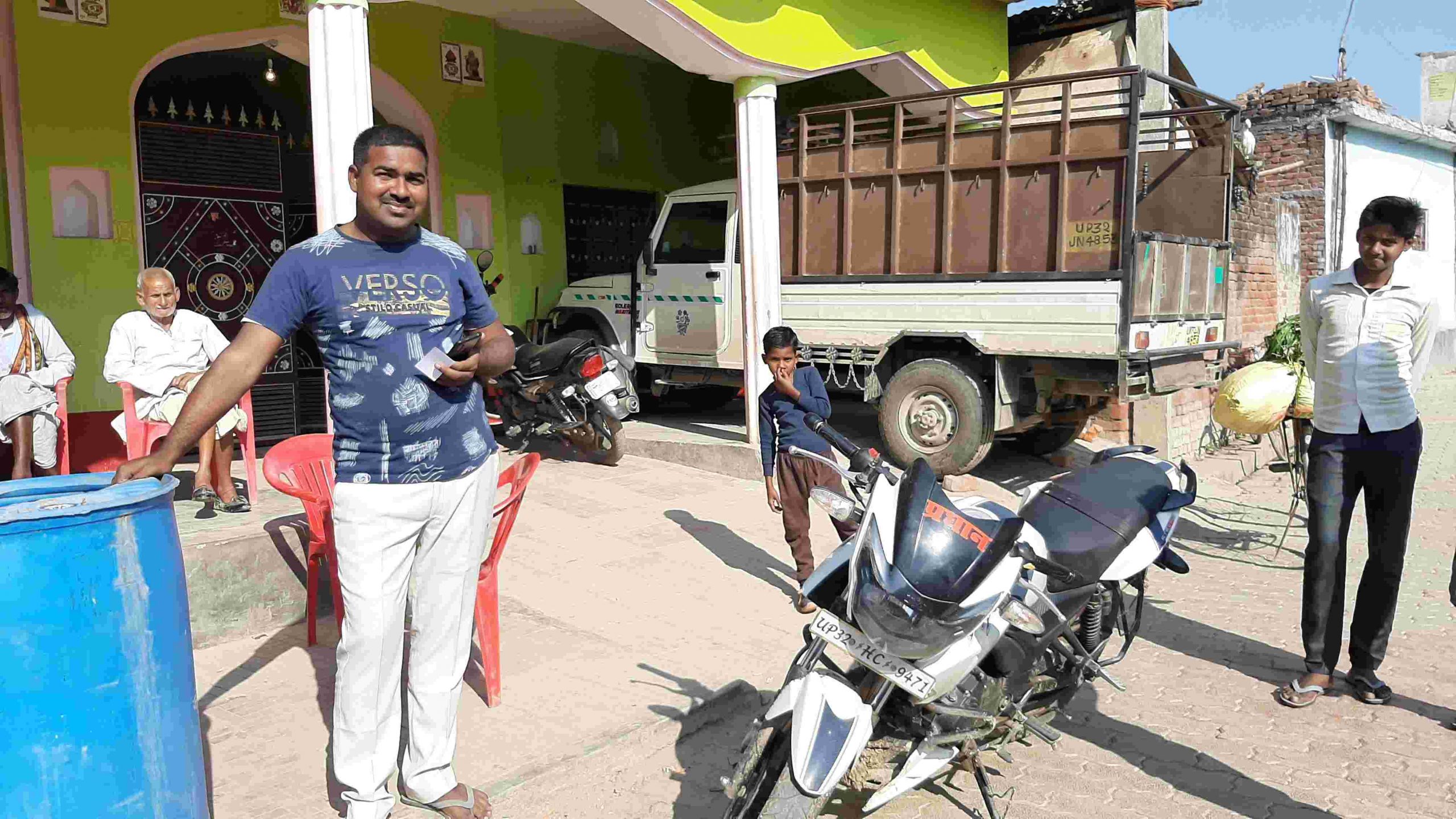
Lucknow
“I am the pradhan representative, my mother is the gram pradhan (village head). All the development-related work in the panchayat happen with pradhan’s consent. I simply execute them,” said Anil Yadav, 28, whose mother Jaydevi, 55, is a gram pradhan.
But if you visit the Attari Gram Panchayat, on the wall of the pre-secandary school, you will find Anil Yadav’s name mentioned as the gram pradhan for the financial year 2019-2020. This panchayat is about 55 kms away from state capital Lucknow.
When asked if the women village heads get to do any kind of work, Roop Narayan, 55, from the panchayat said: “Go anywhere in the village, if the pradhan is a woman, 75 per cent of the work is done by her husband, son or father-in-law. How can people oppose this when the authorities don’t oppose it?”
He added: “Because of reservation, the lady is just a namesake pradhan who has no say in the work. In the block level meeting, the woman is taken as a mere formality which is required. It is known to all the block level officers, but no action is ever taken.”
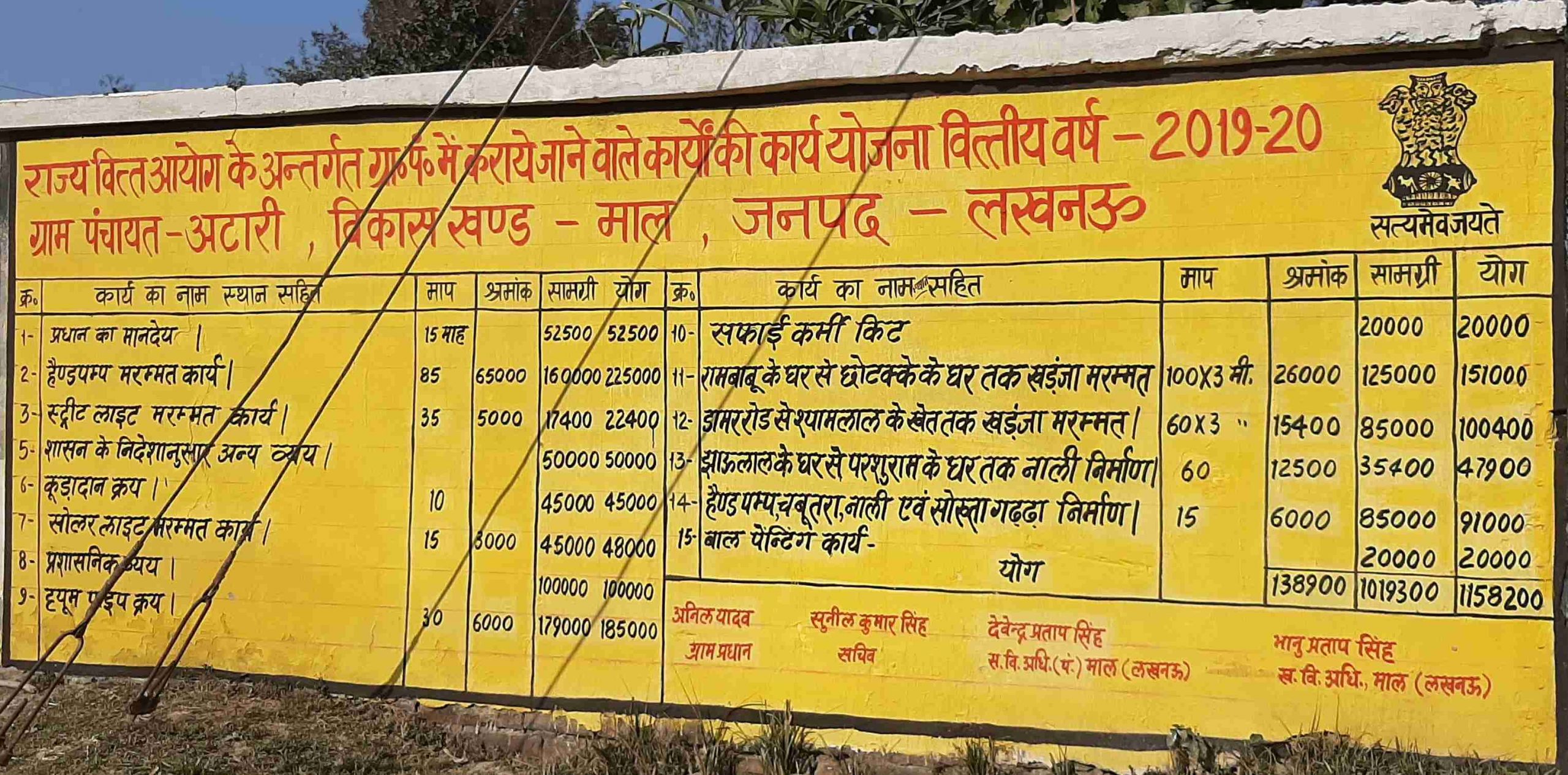
When the same question was put forth to pradhan representative Anil Yadav, he replied: “My mother is aged. There was a seat reserved for a woman, so she contested the elections. But now she won’t be able to manage on her own? I have to accompany her. A gram pradhan has several responsibilities. How can a woman be expected to handle it all?”
We couldn’t meet Jaydevi, who is the gram pradhan on paper, as she was not at home.
About 70 per cent of the country’s population dwells in villages and there are 2,39,000 gram panchayats across the country. Half, that is 50 per cent, seats are reserved for women in panchayat elections in 20 states of the country. Uttar Pradesh is not a part of this yet. The number of women pradhans in the panchayat has increased as there are seats reserved for them, but their participation is still very low.
“In South India, Uttaranchal and the North-East, women are leading in almost every area, whether it is the farming or the panchayat. But in Uttar Pradesh, about 80 per cent of women have nothing to do with panchayat. “If we look at the past 25 years, the role of women in panchayatshas changed drastically,” explained Dr Chandrashekhar Pran, founder of Teesri Sarkar working on panchayats across the country.“Even if 20 per cent of women are able to be at the helm of panchayats affairs, it is a major change,” he added.
Yadav, the pradhan representative, said: “The MPs MLAs are given an assistant. If similar assistance had been provided to the gram pradhan, we wouldn’t need any help. Many times, these women are not educated, so the men of their families have to help them out.”
He informed the Attari Gram Panchayat organizes six meetings in a year, which are attended by gram pradhan Jaydevi. However, the villagers disagreed. At some distance from the pradhan’s house, there were many women and men standing under a thatch, quite angry that the gram pradhan has never met them after winning the election.
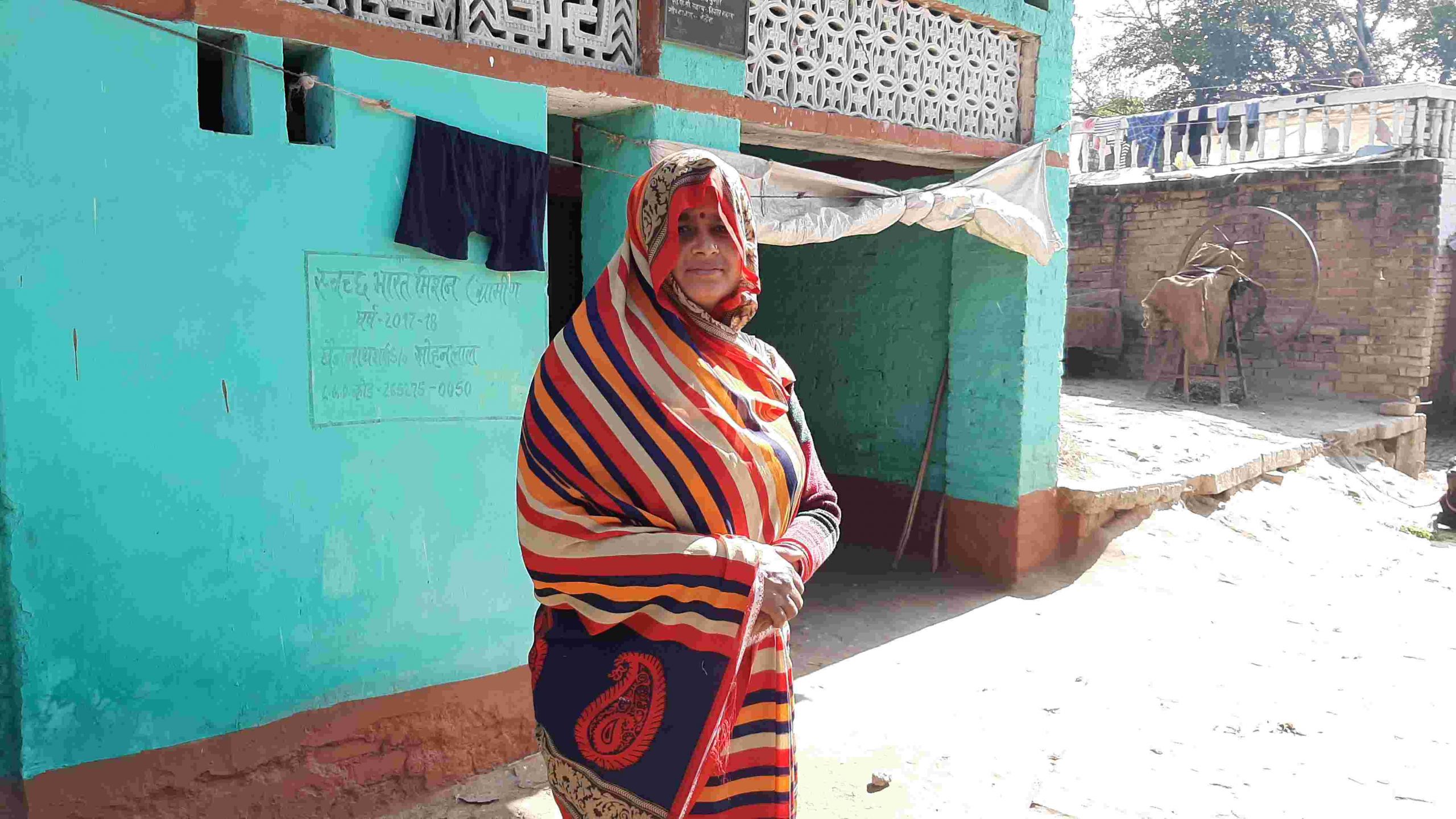
When asked how many times she had been to the meeting, a woman standing there said: “I have come to know from you that there has been a meeting in our panchayats. We have never met since her winning the election, so if there had been a meeting, we had not received the information. Does the meeting occur, sitting inside the house?” The people who stood there nodded in support.
One kilometer away from Attari Gram Panchayat is the Kerora Gram Panchayat that has yet another woman pradhan named Jaydevi too. The Kerora Gram Panchayat of Gram Pradhan Jaydevi Yadav is open defecation free and child marriage-free.
When asked what work she did for development in her panchayat in four years, she said: “Pavage, drains everything was built. The Anganwadi centre was also repaired. The village is defecation free. Houses have also been provided.”
She, however, added: “The official work of the block office is done by him (the husband).Where all can I go alone?He looks more after the work of the prandhan, I a little less.”
When asked whose decision was it to contest the election, she said: “Although it was a male seat, my husband could not contest the elections because he is in a government job, so I fought and won by 200 votes.”
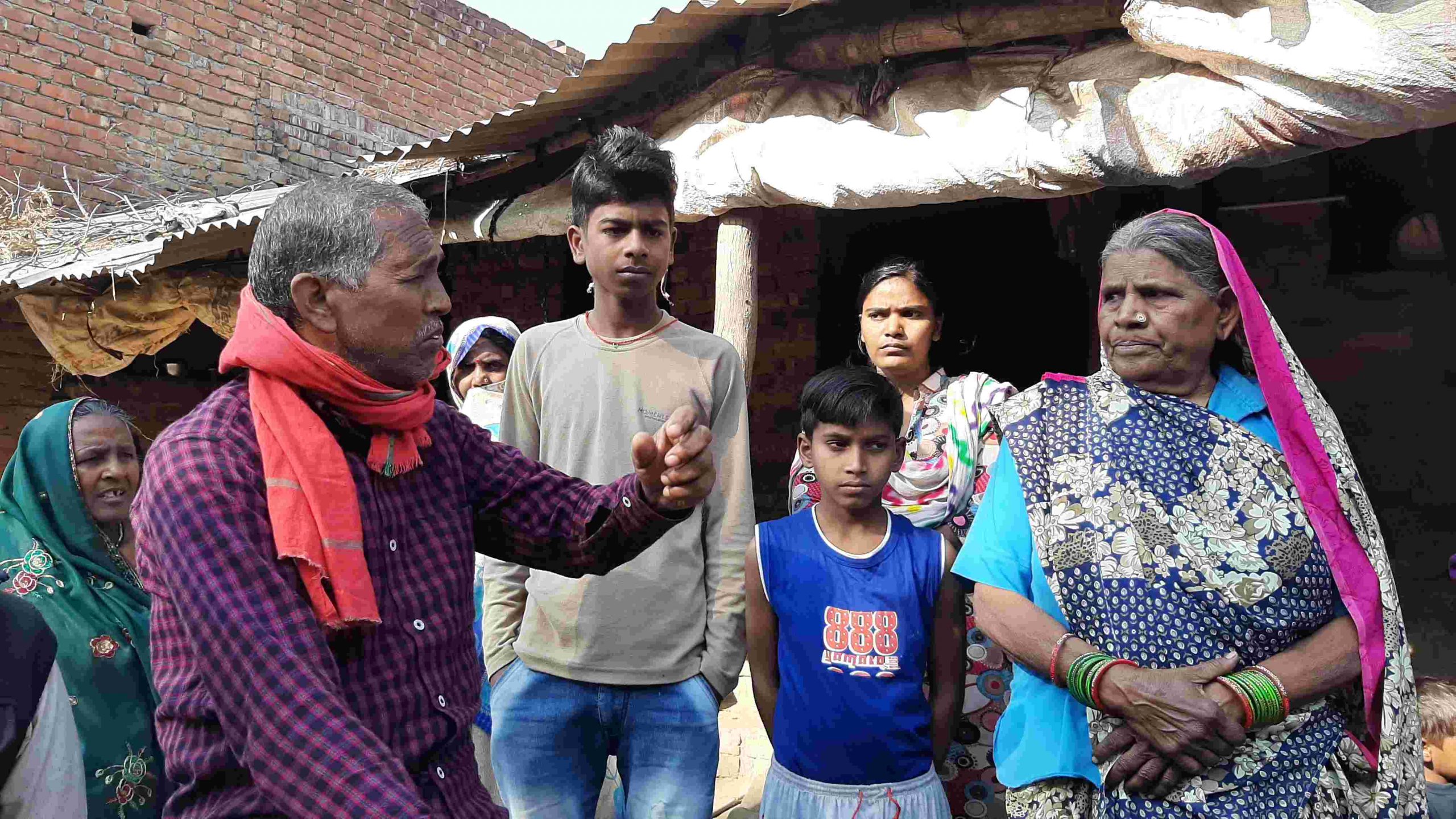
When asked when does she convene open meetings, she said: “I go to Anganwadi once a month. I sort out those problems which I can. For a year, our account did not receive any money. My husband is much more aware than I am, so he is more involved. I visit the block office with him. I have also contested elections for the first time, so gradually I am picking up the ropes. I faced a lot of hesitation in getting out of the house, but now it is not the same.”
A car was parked in front of Jaydevi’s house with ‘Pradhan’ written boldly over the rear glass pane. Similarly, Yadav’s motorcycle was also fitted with the plate reading ‘Pradhan’. Villagers say it is common to write ‘Pradhan’ on the nameplate of the vehicles in the village.
Vatsalya is a non-governmental institution working in this gram panchayat with the help of which this panchayat has been freed from child marriage. Saurabh Singh, project coordinator of the Child Centric Community Development Programme at Vatsalya informed: “The panchayat has a team of youth who keep us reporting on the child marriages in the village. In many places, gram pradhan shows interest while in other places, he may not. The lady gram pradhan here did not show much interest in the programme as she remains in parda.”
She added: “If the women’s gram pradhan supports such programmes, a lot of issues related to women can be addressed. Here, we work in 20 gram panchayats in which five gram panchayats have lady gram pradhans but their participation in the panchayat is negligible. Women do not step out either due to the patriarchal oppression or customs.”
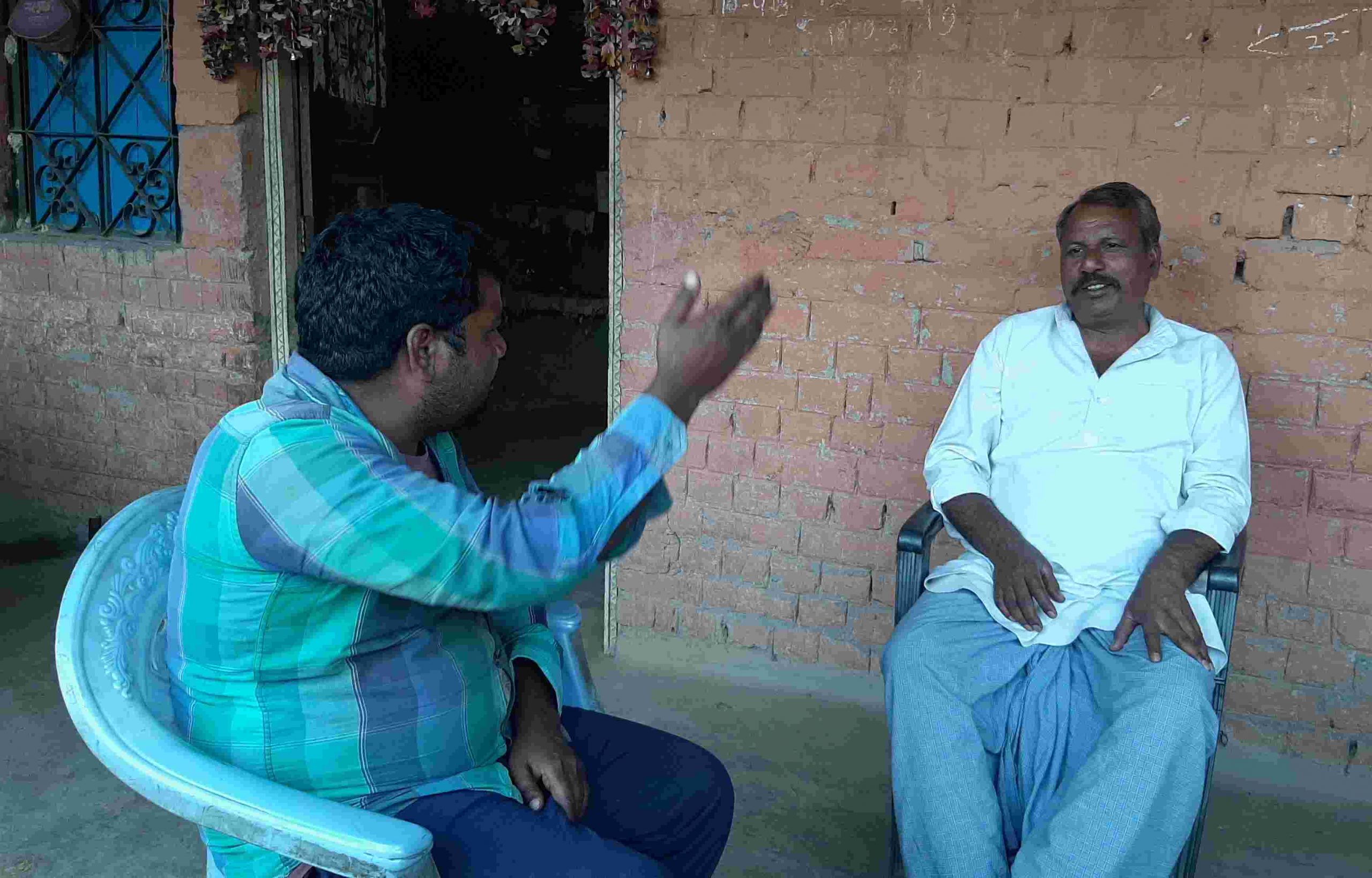
About four kilometres away from the Kairora Gram Panchayat, Shahmau Naubsta Gram Panchayat also has a woman pradhan but her work is carried out by her father-in-law and brother-in-law. Pradhan representative of Gram Pradhan Vijay Lakshmi, her father-in-law Madarilal said: “Wherever one is required, one works there. Where it is required for the pradhan to be present, she does go. How can a woman move about alone in the night? Anything is possible in the village, one has to step out anytime for anywhere, so how can a woman pradhan be expected to move alone?”
A woman from Shahmau village, on the condition of anonymity, informed: “The lady pradhan has never spoken out after winning. She does not even come to the meetings. Anyway, she lives in Lucknow mostly. Her father and brother-in-law take care of her entire charge.”
She added: “Our women pradhan is quite educated, why would she be willing to listen to the poor in the village? We had hoped that an educated woman would bring rapid development to our village upon becomingits head but nothing happened.”
After reservation, women are introduced to active politics but they have still not got the right to work.
“There is a different kind of politics in the village. There are some social restrictions, customs which prevent women to work openly for the panchayat. But if men want, they can co-operate in working instead of assuming the full charge. Women can bring out better development of panchayats as compared to men,” said Dr Chandrashekhar Pran.

